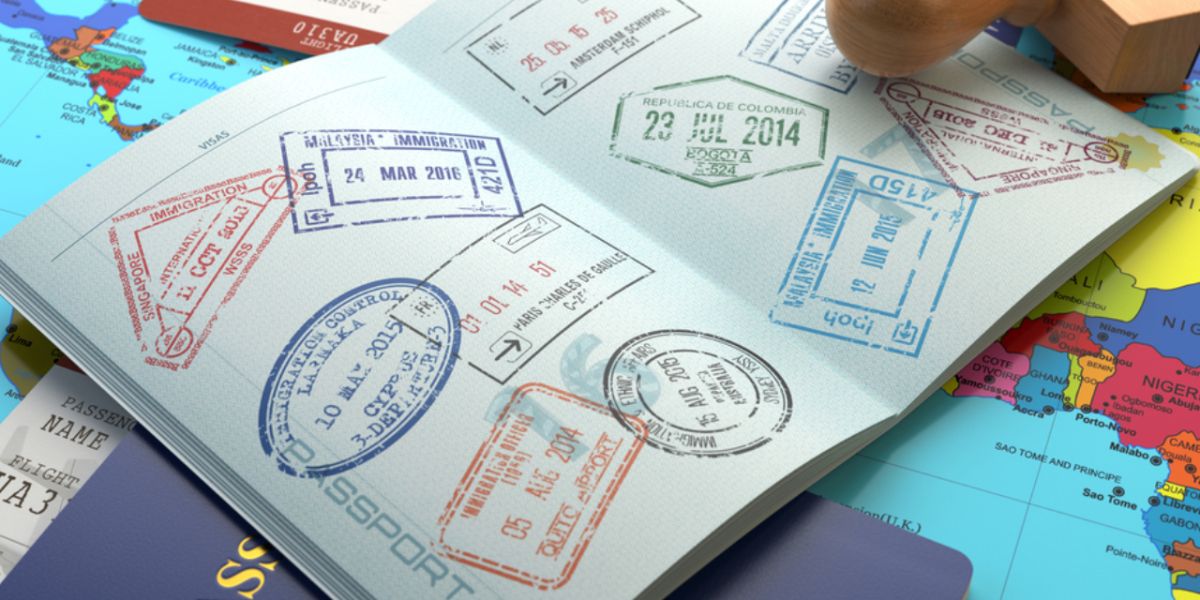
Looking forward to your experience in the Romanian regions? First, you need to know everything about the visa and other application processes and procedures to make your stay comfortable.

Before travelling to Romania, make sure to check if you need a visa or not, and if so, what kind of visa you are required to have. Check the four types of visas available according to the duration and purpose of your stay.
The first type (A visa)
This will allow you to access the transit zone of an international airport, as well as its parking. You can stay in this area until you board your flight and travel to another country. Keep in mind that you will not be permitted to go beyond this zone; therefore exploring Romania with this visa is not an option. Here are the documents that are required.
The transit visa (B visa)
This kind of visa will allow you to travel to Romania for five days maximum and it can be given for one or several transits. You can read about the documents you need for this kind of visa here.
The short-stay visa (C visa)
It will allow you to make a maximum of 90 days stay in Romania for a total of 180 days. You can receive this kind of visa for official or government missions, for business trips, for visiting family or relatives, for tourism or sports, for events of cultural, scientific or academic significance. Keep in mind that the C visa can't be extended and remaining in the country more than your visa permits will have serious results.
This visa requires a different set of documents for each kind of visiting reason. You can find all the information needed below:
- Official missions – you can read about the paper requirements here;
- Tourism – all the details are presented here;
- Private visits – this refers to people who are invited to the country by Romanian citizens and here are the supporting documents.
- Business trips – these are the visits made for economic or commercial reasons. The list of papers needed is here;
- Transport – this is for the third-country nationals who want to travel to Romania, for short periods, for professional activities associated with cargo and passenger transport. The needed documents can be found here;
- Sports - Read the list here;
- Cultural, scientific and humanitarian activities - You can find the list of required paperwork here.
The long-stay visa (D visa)
This visa will allow you to stay in Romania for 90 days maximum. The principal difference between this and the previous visa type is that the D visa can be transformed into a stay permit. There are many reasons of stay for which the D visa can be given. This includes professional, economic, commercial or religious activities, but also study purposes or being a detachment. It even covers situations when a person indulges in other projects that are not against Romanian laws.
Can you extend your visa in Romania?
There are only a few types of visas that you can extend during your stay in Romania. For instance, as already mentioned, the C type cannot be extended. Now, that D visa can be prolonged and also become an authorisation of stay. In case you are a foreigner coming from a non-European country, you will not be able to switch the C visa into a D during your stay.
In addition, an extension to the D visa can be requested after 90 days. The long-stay visa needs to be granted with the approval of the Ministry of Administration and Interior, meaning the Romanian Office for Immigration. Foreigners who have entered the Romanian territory with a long-stay visa can apply for an extension of it and obtain a residence permit.
Those who have a D visa can apply for an extension after 90 days. The request will be sent to the Romanian Immigration Office by the person in the cause at least 30 days before the current visa expiry date. This way, he or she will obtain an extension of stay and then authorisation of stay.
Applying for a visa in Romania
The visa application has to be addressed to the nearest Romanian diplomatic representation to your place of residence in your home country. You can do it by yourself, or with the help of a legal representative if there is a minor. The documents you will present might be different, depending on the visa you are requesting.
There are different variants of the C visa, according to the purpose of your stay:
- the C/M visa applies official missions, and you can read about the paper requirements here;
- the C/TU is given to people that wish to travel to Romania for tourism. All the details are presented here;
- the C/VV is given for private visits. This refers to people who are invited to the country by Romanian citizens and here are the supporting documents.
- the C/A is given for business trips purposes. These are the visits made for economic or commercial reasons. The list of papers needed is here;
- the C/TR is designed for transport purposes and is for the third-country nationals who want to travel to Romania, for short periods, for professional activities associated with cargo and passenger transport. The needed documents can be found here;
- the C/SP is given for people that come in Romania for a sports competition or other sports purposes. Read the paper list here;
- the C/ZA is given for people that are travelling to Romania to attend cultural, scientific or humanitarian events, for short-term medical treatments or other activities that are in line with local laws. You can find the list of paperwork needed here.
When it comes to the visa for long stays, the D visa, here are the types you need to know about. They also depend on the purpose you are coming to Romania:
- The long-stay visa for economic activities (D/AE). This one is given to the third-state foreigners that will do economic activities through special legislation. You can read more here.
- The long-stay visa for commercial activities (D/AC). This visa is for third-state nationals who will become shareholders and associates in management and other administrative positions while working in Romanian companies. To read about the necessary paperwork, click here.
- The D visa for professional activities (D/AP). If you are going to exercise liberal professions in Romania, you will need this type of visa. Find out more here.
- The long-stay visa for employment (D/AM). This type of visa is necessary for those who will be playing in clubs or teams for Romania. To obtain this visa, you will need a work contract and a legal agreement. Full paperwork details here.
Getting a Permanent Visa in Romania
For those who are EU/ EEA/ or a member of this family and have a continuous legal stay for more than five years, you can apply for permanent residency.
The validity of this residence is ten years; exception makes the permits for people aged under 14, who will receive a validity of 5 years. To obtain this permanent residence card, you must go to the local services of the General Inspectorate for Immigration in the country you are from. Here is the list of documents you need to present.
The right of permanent residence will be lost in case of the absence from the Romanian territory for a period exceeding 2 consecutive years.
Entry requirements in Romania for U.S. citizens
In case you are a citizen of the U.S., you need a valid passport to enter Romania. Check the expiration date on the passport to be valid, especially if you are in transit through a European country, part of the Schengen area. Then, the passport needs to be valid for at least three months beyond the departure date.
For other information about travelling to Romania or transiting a Schengen country, read more on Travel to European Countries in the Schengen Area, as well as on the Visit the Department State website.
Visa exemptions in Romania
There are some exemptions for the visa requirements. For instance, the member countries of the U.E. and the European Economic Area don't need a visa to enter Romania. Also, the citizens from the Republic of Moldavia, Serbia (except for passports issued by the Serbian Coordination Directorate), former Republic of Yugoslavia, Macedonia, and of the Republic of Montenegro (provided the traveller holds a biometric passport).
Also, if you are a citizen with a double or multiple-entry Schengen visa, or you have authorisation of stay from a Schengen country, you will not need a visa for coming to Romania.
Also, those who hold visas or authorisation of stay from Bulgaria, Croatia or Cyprus, or have a small border traffic permit from the Romanian authorities, will also be exempt from any visa requirement. After 90 days in Romania, all these foreign citizens need to request a registration certificate from the Romanian Immigration Office.
Finally, holders of visas or authorisation of stay delivered in Bulgaria, Cyprus or Croatia, and holders of a small border traffic permit issued by Romanian authorities are also exempt from the visa requirement. After a period of 90 days in Romania, they have to request a registration certificate from the Romanian Immigration Office.
Useful links:
Romanian Embassy
Travel State Government
General Inspectorate for Immigration
World Wide Romanian Representations
List of foreign nationals requiring a visa to travel to Romania
List of foreign nationals exempted from the visa requirement to travel to Romania
List of required documents to request for a C-visa
List of required documents to request for a D-visa
Online visa request form
We do our best to provide accurate and up to date information. However, if you have noticed any inaccuracies in this article, please let us know in the comments section below.








